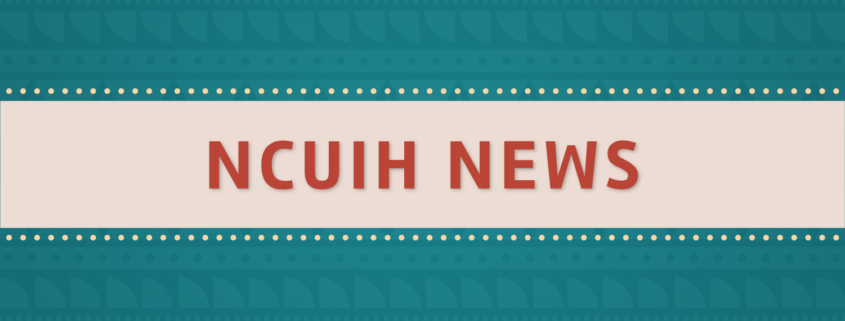NCUIH in the News: “Spending leaders agitate for shielding Native American services from shutdowns”
Spending leaders agitate for shielding Native American services from shutdowns
By Supriya Sridhar
04/19/2019 05:01 AM EDT
Kerry Hawk Lessard scrolled through Walmart’s four-dollar prescription list, hoping for a miracle.
Normally, the Native American health clinic she runs in Baltimore would have been able to cover the $70 medication it had prescribed for a man who had just undergone a tooth extraction. But it was January, during the 35-day government shutdown, and federal assistance had stopped flowing to Lessard’s organization, constraining cash for medicine and services like support groups for people struggling with opioid addiction.
“We are sending him out into the world with a prescription that he can’t fill,” she recounted this month.
The strain on Lessard’s clinics, Native American LifeLines, was felt by many American Indian health providers throughout the country that rely on federal money from the Indian Health Service. So in Congress, high-ranking lawmakers on both sides of the aisle are rallying now behind plans that would insulate Native American assistance from the effects of future shutdowns.
The proposals would essentially lay out two years of funding, rather than one, for American Indian health clinics, as well as other tribal assistance like education support.
“Indian Tribes, their health care should not be dependent on whether or not Congress gets its other work done,” said Rep. Tom Cole (R-Okla.), co-chair of the Native American Caucus and a cosponsor of bills that would switch the funding model for those clinics. “We have a treaty obligation to the Native Americans, and we ought to protect them from being caught in the dispute that they didn’t cause.”
While the Indian Health Service is run by the Department of Health and Human Services, Congress funds it through the spending bill that covers the Interior Department and the EPA. So some lawmakers championing the funding change say it would fit most naturally in that spending measure for the fiscal year that starts Oct. 1.
The House Appropriations Committee plans to start unveiling and marking up its fiscal 2020 funding bills later this month, with the goal of passing all 12 of the annual spending measures on the floor by the end of June.
Betty McCollum (D-Minn.), who chairs the Interior-Environment spending subcommittee, has introduced provisions, H.R. 1128 (116), that would provide advance funding for agencies like the Bureau of Indian Affairs, Bureau of Indian Education and the Indian Health Service. In the Senate, Tom Udall (D-N.M.) has rolled out a companion measure, S. 229 (116). And Rep. Don Young (R-Alaska) has proposed a narrower bill, H.R. 1135 (116), he said he will push only if the others go nowhere.
“If it doesn’t happen this year, we have laid the foundation,” McCollum said during a hearing this month. “But we’re not going to stop there either.”
In the Senate, the two Republicans representing Alaska have heard this year from tribal groups advocating for a funding workaround that would protect them during the next lapse. The Aleutian Pribilof Islands Association, which was forced to dip into its funding reserves during the most recent government shutdown, specifically cited Young’s and Udall’s bills in a letter this year.
But Sen. Lisa Murkowski (R-Alaska) is concerned that seeking funding changes for agencies other than the Indian Health Service could complicate the legislative endeavor and decrease the likelihood of being able to clear such a bill, her office said.
Some in Congress are worried, too, that making an exception to shield Native American programs from the pain of government shutdowns would set an inequitable standard.
“The concern we have is that there are many, many programs that, during the shutdown, suffered dramatically and that we have to consider the precedent that’s set,” House Budget Chairman John Yarmuth (D-Ky.) said during a House Rules Committee markup this month.
Already, portions of the Medicaid program, the Veterans Health Administration and the Education Department’s formula grants are aided by the kind of funding extension the lawmakers want for Native American programs.
“Don’t decide for some arcane budget reason that somehow Indians have to be subjected to discretionary spending limits on their health care when no other American is,” Cole said during the Rules Committee meeting.
The Oklahoma Republican, a member of the Chickasaw Nation, said his own tribe keeps a six-month reserve in case of a funding lapse. “We have the ability to do that. A lot of tribes don’t,” Cole said.
During the shutdown, some American Indian health clinics had to close altogether, several had to reduce hours and lay off staff, while others reported that they would only be able to stay open for an additional 30 days.
Maureen Rosette, president of the National Council of Urban Indian Health, plead last month for House spending leaders to make a change, testifying that some American Indian health clinic operators had to take personal liens on their homes to help their facilities.
“Congress cannot continue to let this happen,” said Rosette, calling for “true parity” for Native American programs.



Leave a Reply
Want to join the discussion?Feel free to contribute!